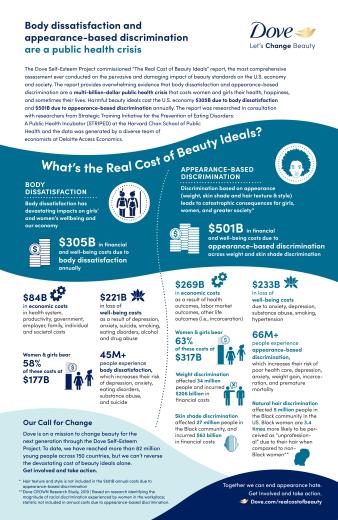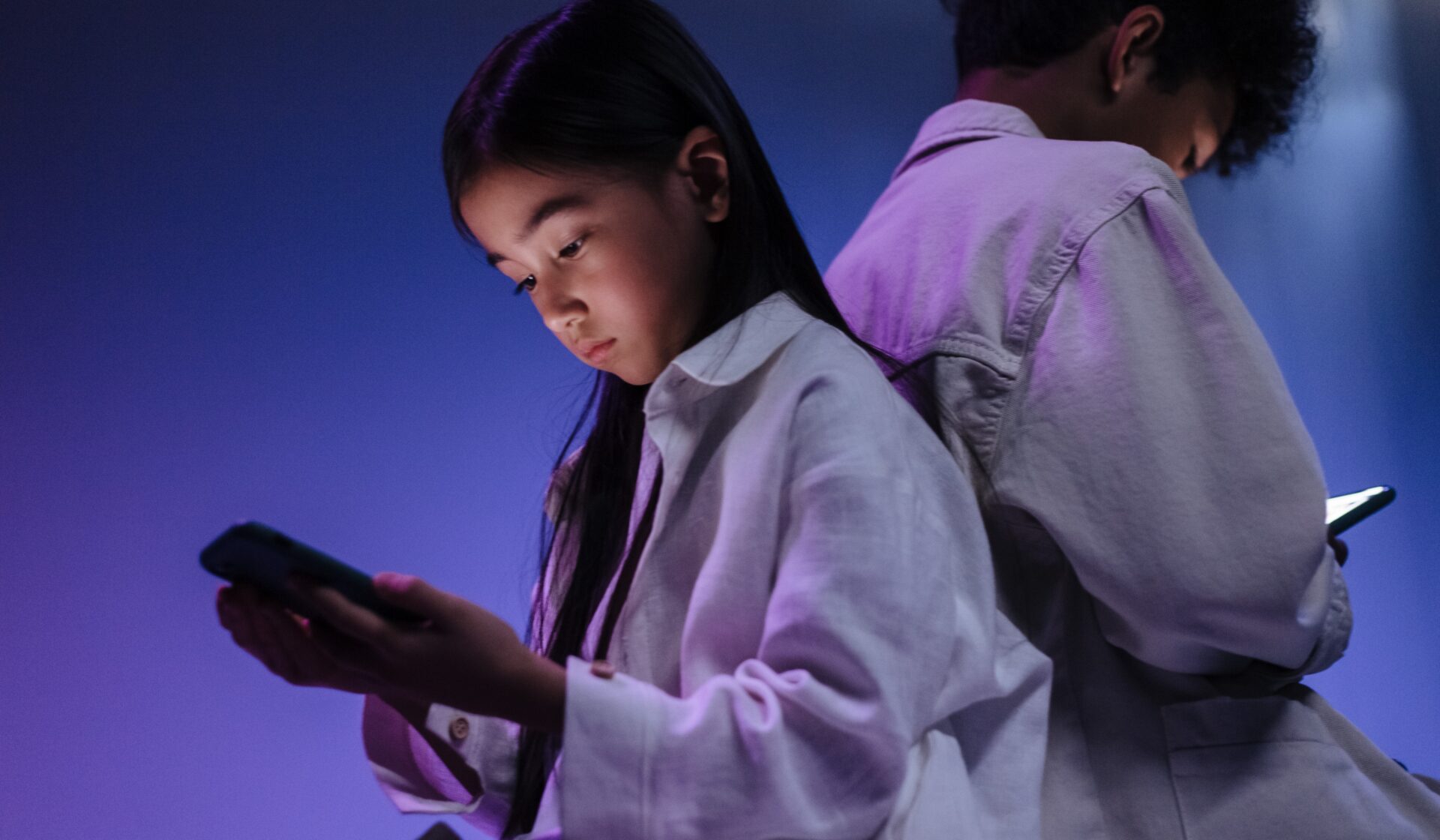The brand’s research has revealed that nine in ten children are being exposed to toxic beauty content on social media, which is having a ‘heart-breaking’ impact on their mental and physical wellbeing.
Renowned for championing self-esteem, Dove has just debuted a report titled ‘The Real Cost of Beauty Ideals’ examining the impact of our image-obsessed world on young people’s mental and physical wellbeing.
Investigating both body dissatisfaction and appearance-based discrimination, it found social media to be largely at fault of exacerbating these two issues amongst children and teenagers.
According to the research, which was conducted in partnership with STRIPED (Strategic Training Initiative for the Prevention of Eating Disorders), nine in ten young people are being exposed to toxic beauty content online – making it one in two whose mental health is being affected as a result.
Not only this, but in the UK, more young people than ever have been receiving treatment for eating disorders, some 10,000 children and teenagers between April and December 2021 with record demand for services (up by almost two thirds since before the pandemic) as uncovered by the NHS.
‘Over the past decade, as social media has exploded, we have witnessed a youth mental health crisis — rising suicide rates, hospitalisations for self-harm, and depression among children and teens,’ explains Sonja Graham, CEO of Global Action Plan, an NGO that’s teamed up with Dove to work towards creating a digital experience that’s a great deal safer for kids.
‘Real change requires action from those with the power to make social media safer by design. We are proud to partner with Dove to advance this mission and ensure social media is a safer place for children and young people.’


















